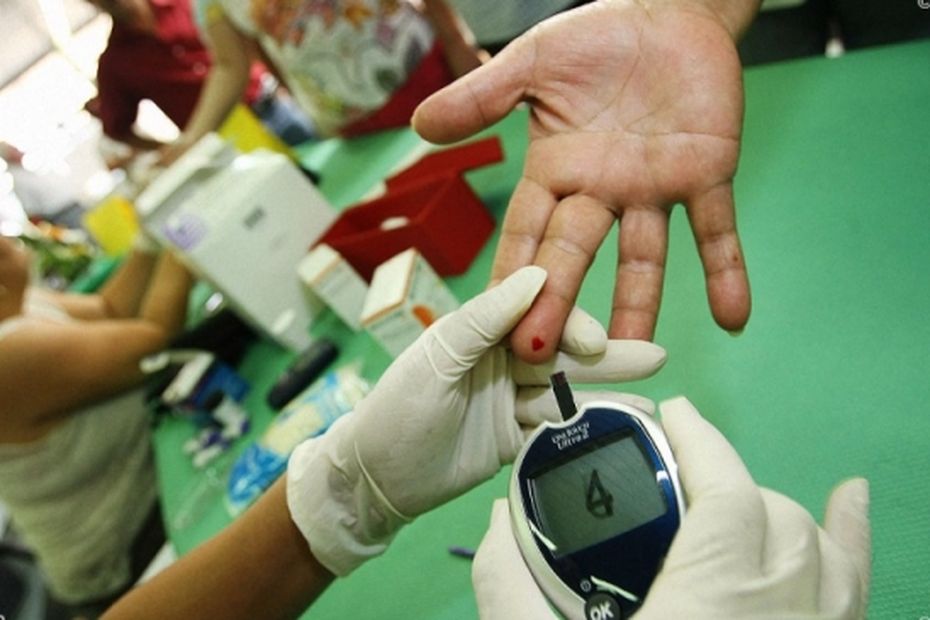According to a study by INSEE published on Tuesday, May 4, one in ten Reunionese declares to be in poor health. The Reunionese are also more concerned by chronic diseases, diabetes and lack of physical activity.
–
One in ten Reunion Islanders considers themselves to be in poor or very poor health in 2019. This proportion is higher than in mainland France, while the Reunionese population is younger. This is the result of a study by INSEE published on Tuesday, May 4 and conducted with the collaboration of the Regional Health Agency of Reunion Island. The inhabitants of Reunion are also more concerned by chronic diseases, diabetes and the lack of ‘physical activity.
Watch the details of Réunion La 1ère:
One in ten Reunionese say they are in poor health, according to an INSEE study in 2019
Age, physical or professional inactivity
Advancing age is the first cause of the deterioration of the state of health. A quarter of Reunion Islanders aged 65 and over consider themselves to be in poor or very poor health. Lack of physical activity is also detrimental to health.
More than the level of income, it is the level of education which is the most discriminating on the state of health. People with higher education degrees say they are in poor health much less often (3%): they would be better informed and made aware of the need for a healthy lifestyle. Professional inactivity also weighs on the state of health. Apart from students and retirees, 17% of other inactive (housewives and housewives, people unable to work, etc.) say they are affected by poor health.
Obesity, more common in Reunion
The Reunionese are more concerned than the Reunionese by obesity (20%) and the lack of physical activity (17%), more frequent than in metropolitan France. In 2019, 45% of Réunion Islanders are overweight, of which 28% are overweight and 16% are obese. The proportion of obese people is higher than that of France (14%).
Obesity is a major public health problem. Stable at a high level for twenty years in Reunion, obesity indeed predisposes to other chronic diseases, such as diabetes or arterial hypertension but also rheumatism.
Lack of physical activity promotes obesity: more than a quarter of people who do not exercise are obese, twice as many as others. Example: 14% of Reunionese say they never produce any physical effort whatsoever, and women more than men (17% against 11%). In metropolitan France, only 6% of inhabitants are in this case.
Physical practice and consumption of fruits and vegetables
Practices favorable to better health, such as walking or cycling and other sports activities, are less widespread than in France, as is the regular consumption of fruits and vegetables. Only 9% of Reunionese follow the recommendation of the High Council for Public Health (HCSP) to consume at least five servings of fruits and vegetables per day, against 20% of inhabitants of France.
Chronic diseases
In 2019, 39% of Réunion residents declared themselves to be suffering from a chronic disease, that is to say a recurring or lasting health problem. After 65 years, a quarter of Reunionese suffer from their health, with chronic diseases more frequent than in metropolitan France at the same ages. Seniors are in fact more often in loss of autonomy in Reunion than in France.
Certain diseases are also more common on the island. This is the case of vector diseases specific to tropical territories and transmitted by mosquitoes, chikungunya and dengue, affecting 10% of the inhabitants. In 2019, 5% of the Reunionese population said they were suffering from the effects of chikungunya, which raged from 2005 to 2006 in Reunion.
In connection with overweight, diabetes affects Reunionese more than the inhabitants of France (10% against 7%). But treated diabetes is twice as common on the island. Hypertension affects both Réunion and Metropolitan residents (17%). However, 47% of Reunionese say they are concerned from the age of 65, against 39% in metropolitan France.
Cardiovascular problems are one of the leading causes of death in Reunion Island, with one in four deaths attributable to a cardiac or circulatory cause, such as cancer. While few young people are affected, 36% of people aged 50 to 64 and 57% of those 65 and over suffer from it. Respiratory problems, more frequent in Reunion than in mainland France, are of a different nature depending on age. Thus, asthma particularly affects young adults in Réunion: 13% of those under 35, more than in France (10%).
Finally, women say they are more often affected by a chronic disease (42%) than men (35%)
A quarter of Reunion Islanders have already given up on treatment
Benefiting from general health coverage and third-party payment, a quarter of Reunion Islanders have already given up on the care they would need, a little less than in France.
The results of this survey will make it possible to define prevention messages for the population of Reunion within the framework of the implementation of the Regional Health Program (PRS) and the Reunionese Program for Nutrition and the fight against Diabetes (PRND).
–


